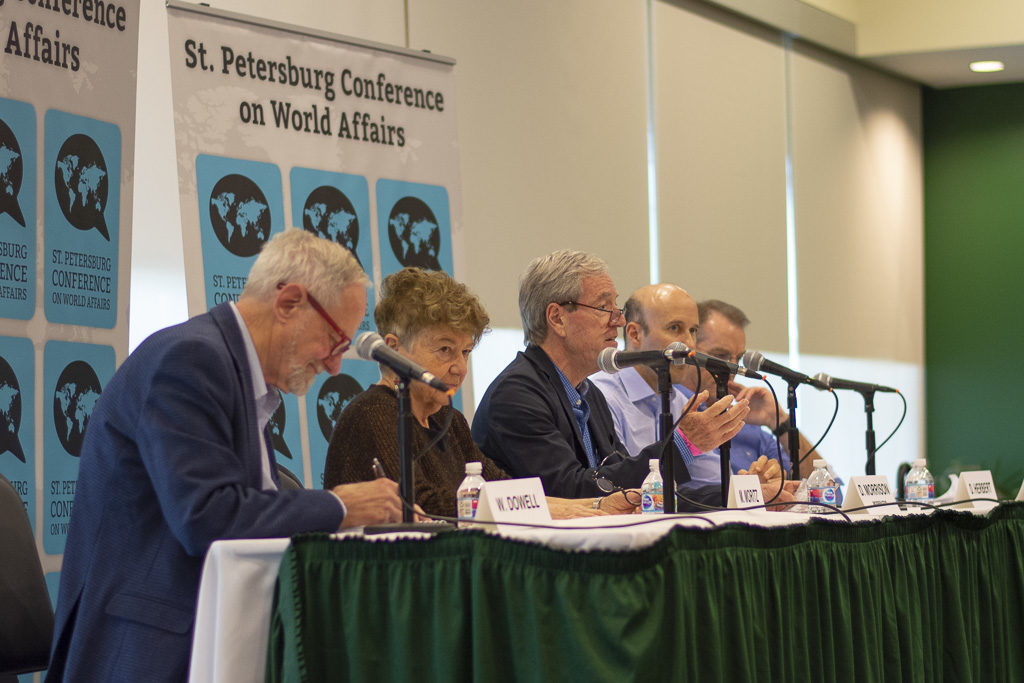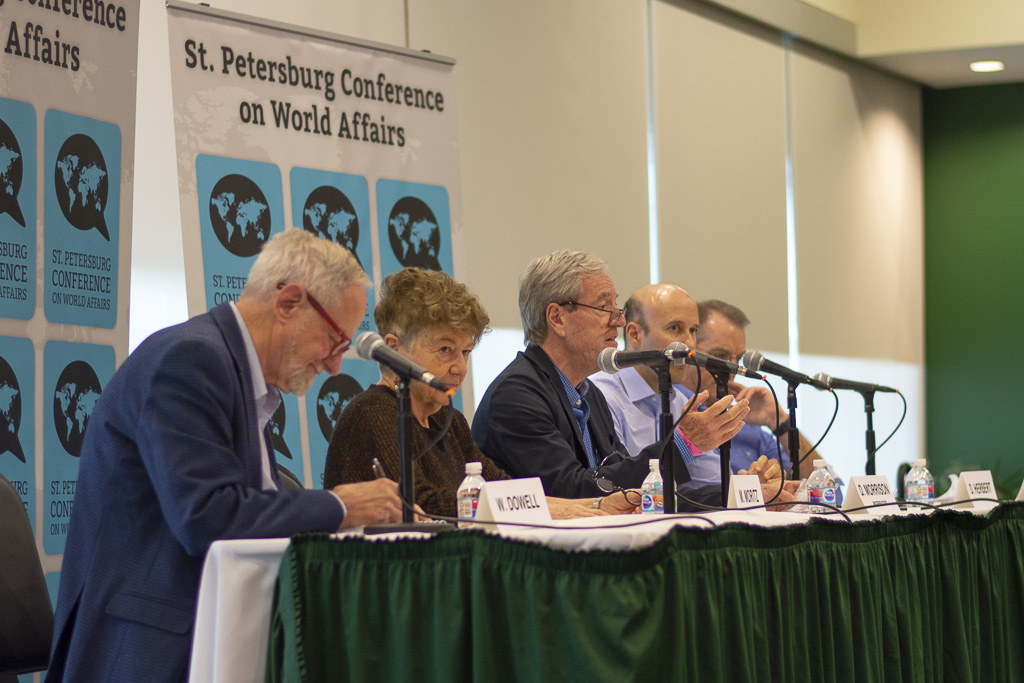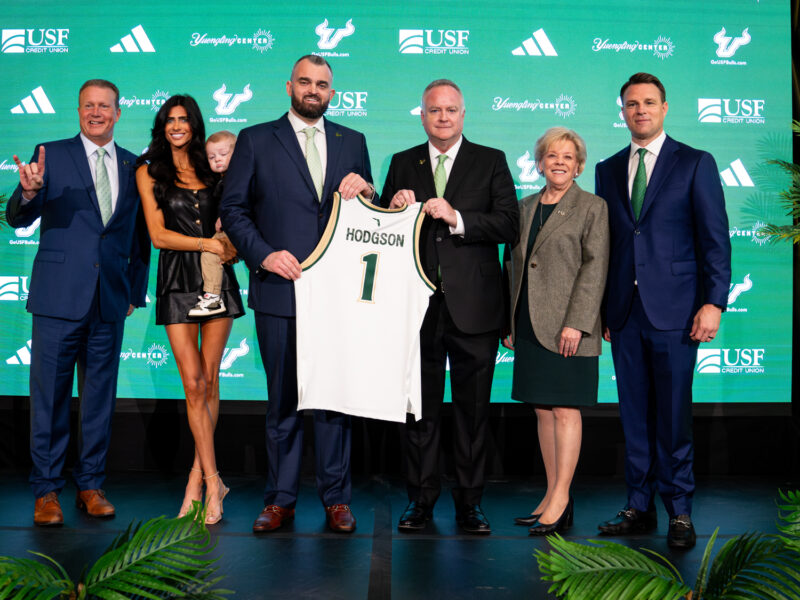
Why does TV news offer opinion-based programming? Because it’s cheap, says Dowell (left). Emily Wunderlich | The Crow’s Nest
By Emily Wunderlich
He watched the news industry evolve from essential facts to infotainment and opinion.
Born in 1943, during the heyday of newspapers and radio news, William Dowell remembers how important papers were to his family during World War II.
“It was not clear that we were going to win the war, and so people read newspapers because their survival depended on it,” said Dowell, a former foreign correspondent for TIME magazine and two television networks.
The 1950s brought the advent of television news, which by the 1960s had supplanted newspapers as the No. 1 source of news for most Americans. And by 2000 the three cable news networks, CNN, Fox News and MSNBC, were challenging the supremacy – and the standards – of NBC, CBS and ABC.
Dowell blamed the shift from straight news to fluff, entertainment and opinion on the economic model of journalism, and a panel at the St. Petersburg Conference on World Affairs seemed to agree.
“So why did we go to opinion?” Dowell asked. “The reason is: It’s cheap. It’s a lot easier to pay somebody to say what they think about something … than it is to pay for reporting, which takes a really long time.”
Marguerite Moritz is professor emerita and UNESCO Chair in International Journalism Education at the University of Colorado, Boulder. She said the commercialization of the news is what contributes most to its detriment.
“In the early days of television news, news was not expected or demanded to make a profit. News was there for another reason; it was to establish the credibility, the prestige, the authority of the network,” she said.
Now, Mortiz said, television reporters and news executives no longer ask how to cover stories, but rather which ones are going to bring in the most viewers.
Her solution? Make the news commercial-free.
“Let (networks) make money from their other partners,” she said.
However, Douglas Herbert, a commentator for the France 24 international news channel, suggested that there’s a place for opinion in a healthy news organization as long as it’s clearly labeled.
“If you really want to solve a problem, I don’t think it’s about getting opinion out of the news,” he said. “But I also believe that it’s equally necessary and vital to make sure that readers are aware of the divide.”
Dowell commended that idea, emphasizing the importance of information in a democratic society.
“Most of us who went into journalism didn’t go into it because we wanted to push forward a political point of view,” he said. “We simply wanted to report and make the world a better place.”



